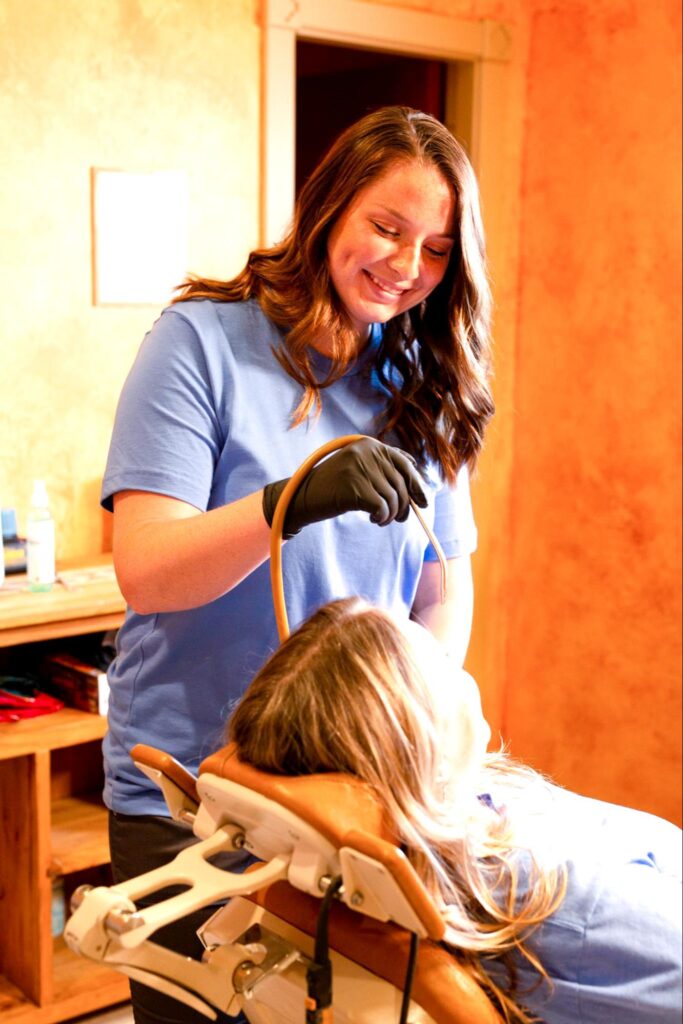Do you or someone you love have wisdom teeth extraction coming up soon? If so, you might be gearing up for surgery, and thinking through all of your options in order to be prepared. That’s a great idea, especially when it comes to your recovery! There any so many things you can do to help yourself recover quickly and with the least amount of pain possible.
Out of all your preparations, creating a plan for eating and drinking during recovery might be the most crucial. At Northeast Arkansas Center for Oral and Maxillofacial Surgery, we like to call it the ‘wisdom teeth diet’, and recommend it to every patient of ours who comes in for wisdom teeth surgery to encourage quick healing and avoid painful complications.
Below we spell out all the details of the wisdom teeth diet that Dr. Phillips and Dr. McDonough have to offer. Their goal is for you to be nourished, while still taking great care of your teeth and surgical sites. Don’t hesitate to give our Jonesboro office a call if you have any questions or issues with these suggestions.
Let’s get started!
What About Eating and Drinking Before Surgery?
Before we jump in on what you should and shouldn’t eat after surgery, we thought it was important to note the restrictions on food and drink before going in. This will depend entirely upon what kind of anesthetic your surgeon plans to use for the surgery. Some anesthesia comes with a higher risk of nausea and vomiting, something that your surgery team will want to mitigate with fasting.
You should receive instructions about your pre-surgery plans from your oral surgeon’s office, but feel free to ask about it, too, if you have any questions or concerns.
What You Should Eat and Drink After Surgery
The first 24-48 hours after your wisdom teeth removal will be the most sensitive time and require you to be extra careful and diligent about what you consume. It is also the time when you will likely have the most pain, so let the pain be a guide. Don’t try to consume anything that feels uncomfortable to your mouth, including foods that are too hot or too cold, anything chewy, crunchy, or hard.
Instead, we recommend that you hydrate well, and nourish yourself as best as you can to give your body the nutrients you need to heal quickly. The goal is to give your sore mouth a rest and avoid dislodging the clots that are covering the surgical sites, while still keeping yourself nourished.
For the first 24 hours you should focus on:
-Resting.
-Drinking lots of water and other hydrating liquids that are not too hot or cold.
-Eating very soft foods that require no chewing, like yogurt and applesauce.
After 24 hours, you should:
-Start adding in more soft and nourishing foods like cottage cheese, mashed potatoes, other mashed veggies or fruits, smoothies, scrambled eggs, warm soups or broths (not hot!), cooked and mashed beans like lentils, pudding, and more.
-Focus on good nutrients and protein, both of which will help speed the healing process!

What Not to Have After Surgery
Your main goals for the first few days and weeks are to rest up, consume nutritious foods that don’t hurt your mouth, and avoid dislodging your clots. This means that you should:
-Avoid everages like alcohol, fruit juice, sodas and seltzers, coffee, and tea. These drinks can irritate the surgical sites in your mouth, and alcohol especially can slow healing time.
-Avoid any foods that are hot, sticky, crunchy, spicy, or small and can get stuck in the sockets.
-Don’t drink from a straw, as the suction in your mouth can dislodge the clots, potentially causing severe nerve pain.
-Refrain from tobacco use for at least 72 hours after surgery.
Good Things to Note
For the first three or four days following our surgery, you should stick with this food and drink regimen fairly closely to prevent the risk of harming the surgery sites or dislodging the clots. After those initial days, you can let your pain be your guide. If you are still feeling a lot of pain, you should stick to the more gentle foods, but if you are feeling better, you can slowly start introducing normal foods back into your diet slowly, starting with the softest ones.
Your surgical center should supply you with the prescriptions that you need to handle pain, as well as a syringe to clean out the sockets after eating. If you do your best to support your healing through good nutrition and avoid harming the surgical sites, you are set up for success! Follow your oral surgeon’s suggestions for how long to continue to clean the sockets, and don’t be afraid to call if you have any questions or need support along the way!

We Are Ready to Care For You
If you are currently recovering from surgery, we wish you quick and happy healing! We hope these tips support you as you rest and recover. If you know that you will likely need wisdom teeth surgery soon, consider Northeast Arkansas Center for Oral and Maxillofacial Surgery! We have been caring for patients in the Jonesboro areas for many years, and have the expertise and caring staff to make your experience as smooth and easy as possible!
